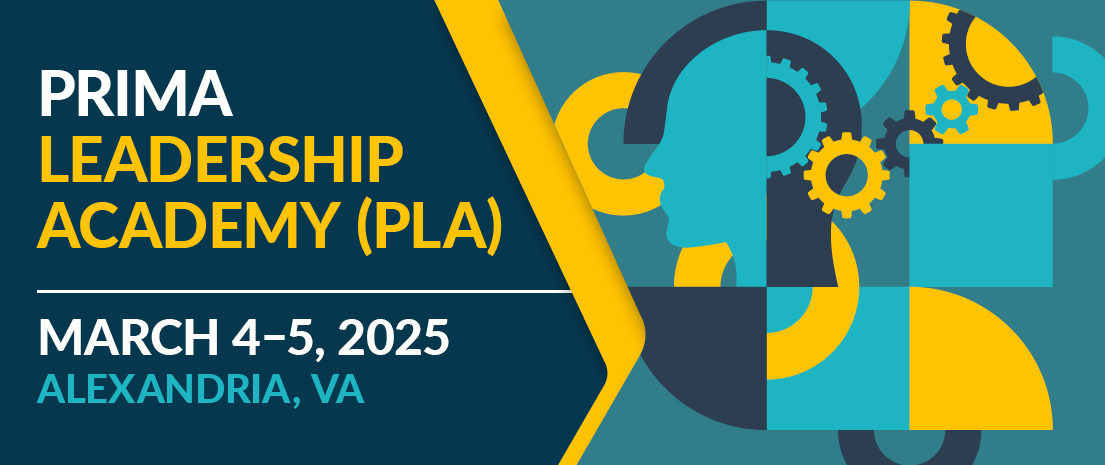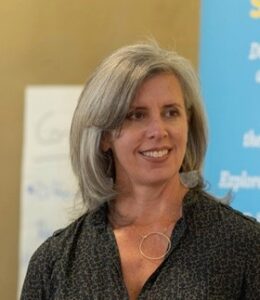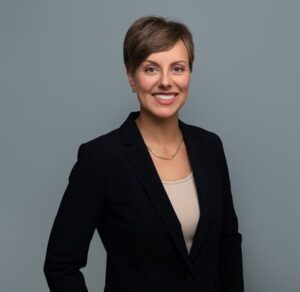
The PRIMA Leadership Academy (PLA) is an adaptive thought leadership program designed to equip public risk management professionals with the necessary skillset to effectively lead others while implementing innovative solutions to complex challenges within the public risk management profession.
Cancellation Policy: If you cancel in writing at least 30 business day before the program, you will be refunded your registration fee minus a $75 administrative charge. No-shows and cancellations not received by the date required, will not be eligible for a refund.
For more information, contact Shaunda Ragland, PRIMA’s Senior Director, Education & Training, at sragland@primacentral.org
View the PLA Brochure
View the PLA Agenda
Listen as Jill Hufnagel provides some insight into what PRIMA Leadership Academy is all about!
Developed according to PRIMA’s core competencies
The PLA curriculum will teach attendees how to leverage an adaptive leadership framework, built at Harvard’s Kennedy School, to address the demands of personal leadership within public entities.
PLA attendees will gain:
- A powerful framework for diagnosing your most entrenched professional challenges
- Deepened understanding of yourself and the systems you work in
- A strategy to navigate the politics—what happens when the rules aren’t clear—at play in your organization and build diverse allies and partners
- A tested approach for consulting with others in your organization
- A robust network of colleagues outside your own enclave
- A practical action plan for next steps related to your professional challenges
The inaugural PRIMA Leadership Academy (PLA) will be held March 4-5, 2025 in Alexandria, VA. PLA is a two day in-person program.
SCHEDULE
| Tuesday, March 4 | Wednesday, March 5 | |
|---|---|---|
| 9:00am - 5:00pm | Class | Class |
| 5:30pm | Reception |
PRIMA's Leadership Academy Housing Block is Now Closed!

Frequently Asked Questions
How will PLA directly benefit me, and further, my entity?
You will learn how to apply the adaptive leadership framework to a current challenge you are facing within the entity you serve. Further, PLA attendees will collaborate with their peers to develop solutions to challenges they are facing within the public risk management profession. PLA attendees will return to their respective entity, with an effective response to an existing issue, as well as, new strategies and concepts that will assist in creating enterprise-wide resiliency within their entity.
Who are the instructors?


Jill Hufnagel is an international expert on adaptive leadership and case-in-point learning, she provides coaching and consultation on unwieldy organizational challenges and designs and delivers immersive leadership workshops built on deep capacity development and possibility thinking. Her clients include Fortune 500 companies, tech firms and financial institutions, school districts and health care organizations, as well as both the federal government and global governing organizations. In addition to her e-book Teachable Moments of Leadership, her writing has appeared in The Kansas Leadership Center's Journal, The Spin and the International Leadership Association’s Building Bridges. Jill began her career working for the Secretary of the U.S. Senate, was the Associate Director of the Batten Leadership Institute, and has served on the executive education faculty at Harvard’s Kennedy School and as a Senior Consultant with Cambridge Leadership Associates. She is a Senior Associate with the Kansas Leadership Center and on the senior faculty of the Beacon Leadership Collaborative. Jill believes the work of leadership is about using strategically the tool that is you to help your corner of the world to thrive and as such: is everyone’s to claim.
Amanda Steffan helps individuals and organizations grow their capacity to make progress on their most difficult, most important challenges through consulting, coaching, and training. Her work is grounded in the principles of adaptive leadership and her approach is uniquely shaped by her experience as a journalist. She has worked with a broad range of clients, ranging from small-business entrepreneurs to government agencies, nonprofits, CEOs and public figures. She trained at both the Harvard Kennedy School and the Kansas Leadership Center and is a member of the International Coaching Federation. Amanda began her career working in local news in South Florida, later taught at a public high school, and served for more than a decade in state and local government, most recently as chief of staff with Denver City Council. She taught Leadership and Public Service at the University of Colorado Denver and currently volunteers on several community boards and committees.
What is adaptive leadership?
Adaptive Leadership
A freamework for engaing with fraught challenges
Jill Hufnagel & Sabina Nawaz
Developed by Ron Heifetz, Marty Linsky and their colleagues at Harvard’s Kennedy School, adaptive leadership is a resource for thinking strategically about seemingly intractable, often unprecedented challenges. The framework has been built over the last 30 years while working with groups of participants from across sectors and around the world.
Core principles of adaptive leadership
1) To survive and thrive, identify and iterate on strategic adaptations.
While change is incremental in time and monumental over time, every system is in constant adaptation. And yet most adaptation happens unconsciously. This framework puts adaptation in the foreground, helping organizations identify the 5-10% of their legacy work and behavior that is expendable to create space for innovation. The catch: adaptation is always contested terrain. What one group points to as vestigial, another sees as vital.
2) To operate strategically, distinguish technical problems from adaptive challenges.
Technical problems—repairing a flat tire or performing bypass surgery—are those that require expertise and for which there are successful known protocols. Both the problem and solution are clear. Adaptive challenges—changing a community’s eating habits or creating sound immigration policy—have markedly different characteristics. Here the problem definition and the solution metrics are open to multiple interpretations; no sure-fire protocol exists; to make progress, the people with the problem will have to refashion their priorities, values, and behaviors. The single biggest waste of time and resources is treating an adaptive challenge as though it were technical.
3) To mobilize people, speak to purpose and acknowledge loss.
Leadership exists only in the context of purpose. To make progress on an adaptive challenge requires keen diagnosis: the ability to get up on the balcony to see more of the system, while resisting the leap to instant action. Central to the work of leading adaptively is raising the heat so that people can no longer avoid confronting inevitable losses. To sustain this heat as productive energy requires a clear purpose. In the face of resistance, amping up purpose helps tamp down real and perceived losses.
4) To ignite broad ownership, uncouple leadership from authority.
Authority is a role or position in an organization or hierarchy. With that authority comes a contractual expectation: to provide protection, order, and direction to those authorizing you. When the work is technical, authority is an excellent resource for execution. However, when the work is adaptive, organizations need a strategy for engaging people across the system they aim to change. Leadership is an act or behavior which anyone may step into, at any time, from anywhere in an organization. The work of leadership is mobilizing people to make progress on a shared adaptive challenge. Those with authority may or may not step into the work of leadership. Thus the good news: the work of leadership is everyone’s to claim.
How much does it cost to attend PLA?
Members - $950
Non-Members - $1050
The registration fee includes the cost of all course materials, breakfast/lunch daily, and the welcome reception.
Is there any pre-course work?
Yes, registrants will receive all pre-course work prior to the start of PLA. All pre-course work must be submitted three weeks prior to the start of PLA.